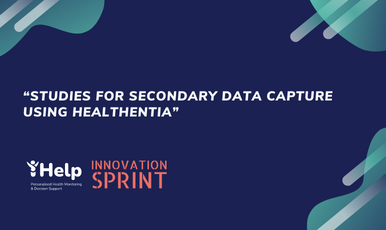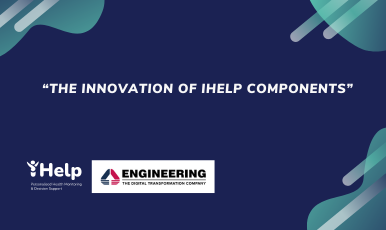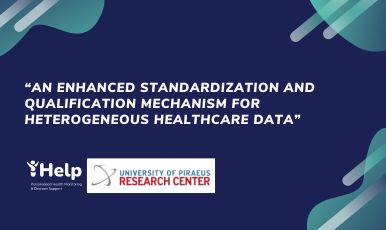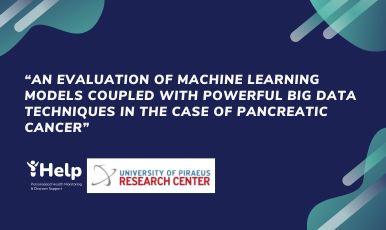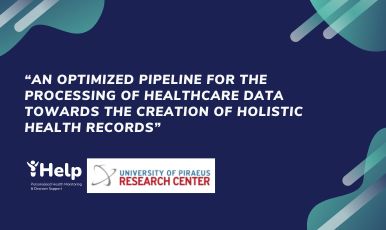The secondary data capture for iHelp, i.e., the collection of patients’ data in a non-clinical setting, is a fundamental step for all five different pilots and it is achieved using an e-Clinical platform, Healthentia.
In further detail, patients use Healthentia mobile app to collect Real-World Data (RWD) from both wearable devices that track physiological and activity data, and questionnaires that have a subjective self-assessment role. Healthcare professionals use the Healthentia portal app to manage the study, define the wanted data attributes, and study patients’ RWD.
The aim of the different pilots is to cover all aspects relating to pancreatic cancer prevention, detection in early stages, and monitoring disease progression. All clinical partners have specific data requirements and thus Healthentia must adapt the RWD collection and processing, and also use different questionnaires addressing the requirements of every use case.
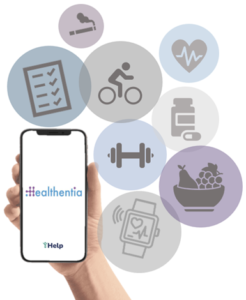
The different categories required for automated measurements agreed upon among all clinical partners are summarized below:
- Physical activity (steps, floors climbed, energy burned, time in different activity zones)
- Exercise sessions (start time, duration, energy burned, type)
- Heart rate info (resting, max, time in different heart rate zones)
- Sleep info (start time, duration, time in different sleep stages)
All these are gathered using a combination of activity trackers (Garmin, Fitbit) and mobile phones (Android and iPhone sensors).
The iHelp questionnaires include questions about: sleep quality, mental well-being, self-esteem, body awareness, subjective happiness, locus of control, health behavior, smoking habits, quality of life, and intensity of nine common cancer patients’ symptoms (pain, tiredness, nausea, depression, anxiety, drowsiness, appetite, well-being and shortness of breath). All these questionnaires have been scheduled at regular intervals (daily, weekly, etc.) and can be answered using Healthentia.
Apart from the automated measurements and the questionnaires, each iHelp study has the option to use 11 different widgets, where the study administrators can enable all, or some of them. It is agreed that the following four widgets will be used in iHelp: sleep, liquids, food categories, and e-diary.
Innovation Sprint (iSprint) acts as Data Processor following the instructions of the clinical partners of the study (Data Controllers). Thus, to legally ground this relationship, a Data Processing Agreement (DPA) needs to be signed between the two parties before the commencement of data collection. The regulatory agreement for the iHelp project is under a Grant Agreement that addresses the compliance obligations imposed pursuant to Regulation (EU) 2016/679. Healthentia uses consent forms in order to notify the patients of the collection and processing of their personal data. Processors are authorized to data processing after being identified and educated to be consistent with the DPA and the specific study’s purposes. In order to ensure the appropriate level of security, suitable measures are implemented to guarantee confidentiality, integrity, and availability, such as data encryption, and regular tests to verify its effectiveness.
Pilot 3, Hospital de Dénia-MarinaSalud, is responsible to study the effects of lifestyle choices on elevating the risk factors for pancreatic cancer. It is the first study that has started and has 14 patients. Currently, this study has two weekly scheduled questionnaires, one relating to symptoms or health problems and one relating to the quality of life and everyday habits, such as nicotine dependence, alcohol consumption, and stress level. The automated measurements are acquired from the wearable device GARMIN VIVOSMART 4, and are continuous throughout the duration of the study.

